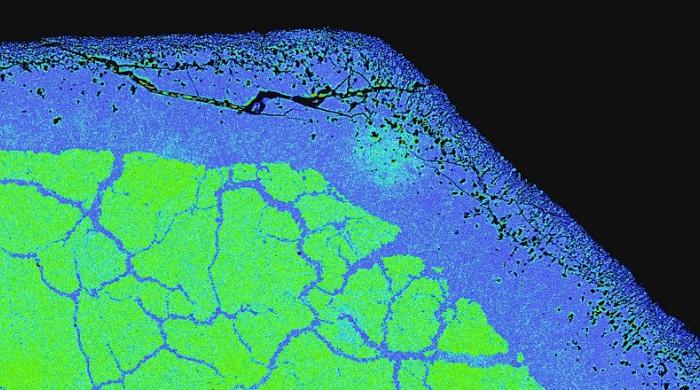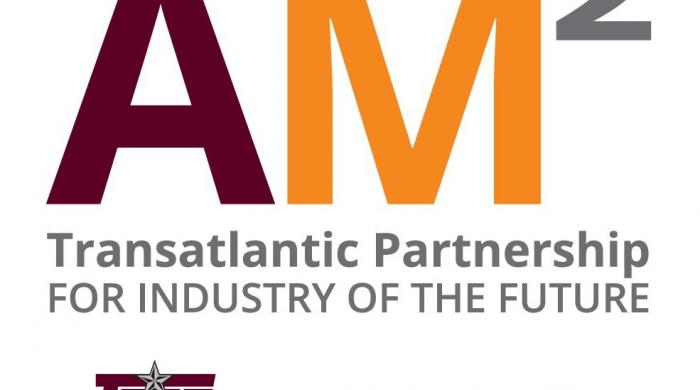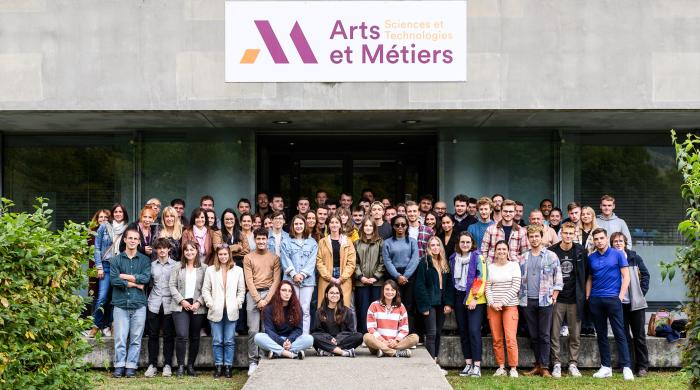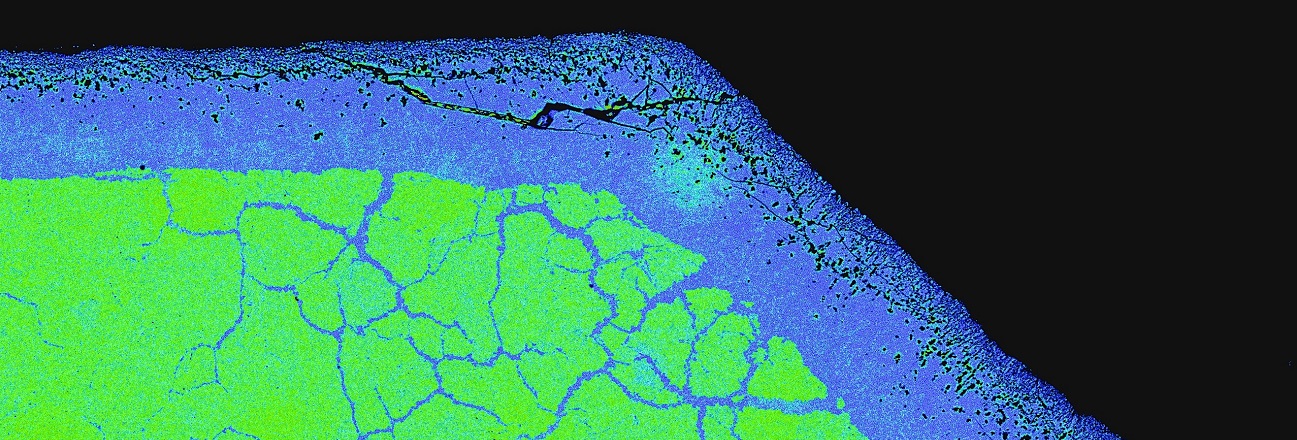
With the evolution of manufacturing processes from the skills required to the industry of the future 4.0, engineering education must adapt to new future challenges. This program will provide future engineers or researchers the basic knowledge and skills to understand, use and develop Industry 4.0 concepts based on smart approaches including the digital revolution.
Campus
Campus Arts et Métiers d’Aix-en-Provence
Profile of the program
With the continuous change of manufacturing processes from the skill to the future industry 4.0, it is necessary to adapt the engineer training to the new challenges. The industries of the future addressed in the AM²S training are technological domains that have the potential to transform manufacturing by a better understanding of the physical mechanisms (mechanical, thermal, chemical, electro-magnetic) involved in the different processes (machining, assembly, forming, additive manufacturing, surface treatments). The measured data are used to build predictive models to optimize the materials and the processes in real-time and until the real-scale of the manufacturing process.
This training will propose to engineers and researchers the fundamental knowledges and skills to understand, use and develop advanced research in the field of Manufacturing and Materials Science.
The Master 1 Specialty “Advanced Manufacturing and Materials Science” for Transport and Energy (M1-AM²S) is directly positioned before a Master 2 course (e.g. M2-AM²S). The objectives are to prepare engineers for industrial and laboratory research and also to increase their knowledges of the physics of manufacturing processes and the fundamentals of the materials behaviors with an objective to design processes to aim for targeted physical properties. The courses are in association with MSMP lab and the Learning Factories of Aix-en-Provence campus.
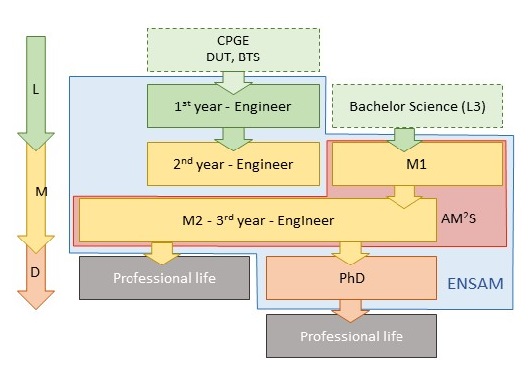
Program Structure
The courses of the M1 track are composed of:
- One semester of core courses for 310 h and 30 ECTS based on mandatory teaching units (TUs) during the first semester. These units will allow to the students to get insights in mechanics and material science for manufacturing processes and to understand the relationship between material and processes with i) scientific core courses in mechanics and material science (2TU), ii) calculation courses with mathematics and numerical methods for engineers and practice on CAD, iii) manufacturing technologies with the most recent developments covering the operating principles, the characteristics and practical applications of each process, iiii) the place of the engineer or the researcher in the world (3 TUs) including a first part on a research project. These last TUs will allow to develop the scientific communication, the team project organization and international language skills. It will introduce the key skills to write proposals and scientific publications.
- A second semester of courses with the research project in Manufacturing and Material Science (300 h and 30 ECTS). Advanced materials and manufacturing processes will be addressed in order to optimize the processes to a targeted surface integrity (topography, residual fields, microstructure). Concepts of functional surface engineering and how they are used to optimize the performance of components are introduced. Physics of manufacturing and quality control courses with hands-on approaches will be provided. The physical interactions between the tool and the material are analyzed with experimental techniques and modelling tools. A mechanical design sequence will permit to take into account the manufacturing process in a durability design. The second part of the research project will continue this semester based on the skills of MSMP laboratory.
- Individual research internship of 6 to 8 weeks. The internship will be led in a research structure (laboratory of university, research service in the industry). Dates: May-June– 6 ECTS.
The courses are based on lectures, seminar talks, specific training and computer for numerical simulation or/and smart computing. For some TUs a small individual or team research project is used to improve the human skills of the students.
Along the courses, an individual laboratory research project (parts I and II) will be carried out in MSMP laboratory and supervised by professors. The subject of the projects will be proposed by the supervisors at the beginning of the first semester.
Flow chart with the program structure of AM²S training including the M1
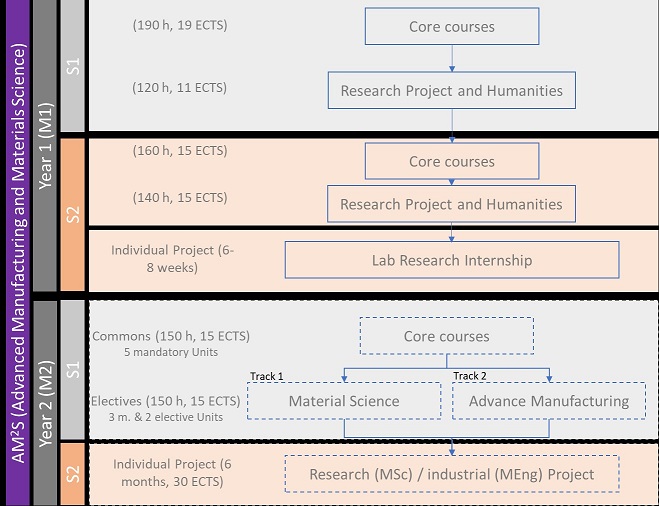
Teaching units in the master M1-AM²S
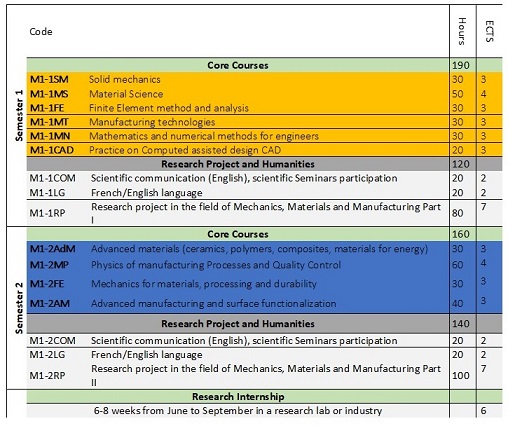
Study and examination regulations
The control of knowledge and the evaluation of acquired skills are done by traditional examinations and continuous control. Notes acquired in continuous review are not subject to a second session. The precise control rules are validated each year by the steering committee. An exam session is organized at the end of the first semester. A catch-up session is organized 15 days after the last examination of the initial exam session.
Each teaching unit is marked from 0 to 20 and the validation procedures of the TUs are those in force in the ENSAM Pedagogic Rules. The control procedures are specified by each TU manager. For lessons in the form of lectures, the test may include one or two written exams, at the discretion of the TU managers. Training, projects, courses, are evaluated both on the basis of continuous monitoring and on the basis of a restitution (report and / or defense).
Graduation requirements
- Validation of TU for 30 ECTS– semester 1
- Validation of TU for 30 ECTS– semester 2
- Validation of internship (individual project) at the end of semester 2
Access to further studies
The AM²S M1 MSc will allow students to continue in all programs requiring this level of study and the enrolment in M2 MSc is a continuation of studies to be favoured. Upon academic selection, opportunities are given for a dual degree between the AM²S Master of Science degree and Master of Science at Texas A&M University.
Admission
- Foreign and French students can apply to the formation
- Bachelor of Science or Engineering graduates only
- Level of English: the minimum requirement is TOEFL iBT 81/120 (or equivalent) or IELTS 6.0
- The selection is based on academic excellence, motivation of the candidate and professional project consistency.
Tuition fees
- Tuition fees: 243 EUR / year (students from European Union and out of European Union)
- Social security costs may be added (maximum €217)
Application deadline
To apply online : admissions (opening in January)
Practical information
Program location: Aix-en-Provence - France
Contact
Ahmed Ktari - ahmed.ktari@ensam.eu

